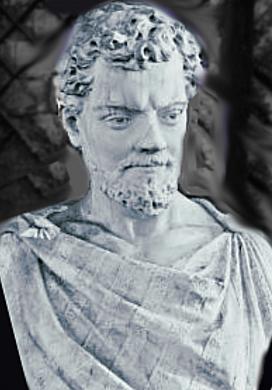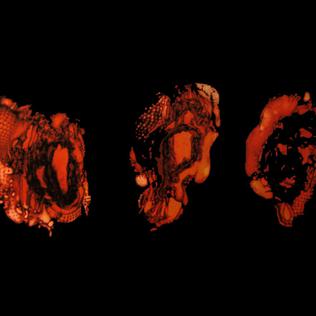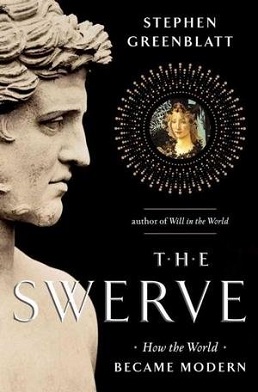
Kubla Khan: or A Vision in a Dream is a poem written by Samuel Taylor Coleridge, completed in 1797 and published in 1816. It is sometimes given the subtitles "A Vision in a Dream" and "A Fragment." According to Coleridge's preface to Kubla Khan, the poem was composed one night after he experienced an opium-influenced dream after reading a work describing Shangdu, the summer capital of the Mongol-led Yuan dynasty of China founded by Kublai Khan. Upon waking, he set about writing lines of poetry that came to him from the dream until he was interrupted by "a person on business from Porlock". The poem could not be completed according to its original 200–300 line plan as the interruption caused him to forget the lines. He left it unpublished and kept it for private readings for his friends until 1816 when, at the prompting of Lord Byron, it was published.

Poetry, also called verse, is a form of literature that uses aesthetic and often rhythmic qualities of language − such as phonaesthetics, sound symbolism, and metre − to evoke meanings in addition to, or in place of, a prosaic ostensible meaning. A poem is a literary composition, written by a poet, using this principle.

Titus Lucretius Carus was a Roman poet and philosopher. His only known work is the philosophical poem De rerum natura, a didactic work about the tenets and philosophy of Epicureanism, which usually is translated into English as On the Nature of Things—and somewhat less often as On the Nature of the Universe. Very little is known about Lucretius's life; the only certainty is that he was either a friend or client of Gaius Memmius, to whom the poem was addressed and dedicated. De rerum natura was a considerable influence on the Augustan poets, particularly Virgil and Horace. The work was almost lost during the Middle Ages, but was rediscovered in 1417 in a monastery in Germany by Poggio Bracciolini and it played an important role both in the development of atomism and the efforts of various figures of the Enlightenment era to construct a new Christian humanism.

Matthew Arnold was an English poet and cultural critic. He was the son of Thomas Arnold, the headmaster of Rugby School, and brother to both Tom Arnold, literary professor, and William Delafield Arnold, novelist and colonial administrator. He has been characterised as a sage writer, a type of writer who chastises and instructs the reader on contemporary social issues. He was also an inspector of schools for thirty-five years, and supported the concept of state-regulated secondary education.

The term Metaphysical poets was coined by the critic Samuel Johnson to describe a loose group of 17th-century English poets whose work was characterised by the inventive use of conceits, and by a greater emphasis on the spoken rather than lyrical quality of their verse. These poets were not formally affiliated and few were highly regarded until 20th century attention established their importance.

De rerum natura is a first-century BC didactic poem by the Roman poet and philosopher Lucretius with the goal of explaining Epicurean philosophy to a Roman audience. The poem, written in some 7,400 dactylic hexameters, is divided into six untitled books, and explores Epicurean physics through poetic language and metaphors. Namely, Lucretius explores the principles of atomism; the nature of the mind and soul; explanations of sensation and thought; the development of the world and its phenomena; and explains a variety of celestial and terrestrial phenomena. The universe described in the poem operates according to these physical principles, guided by fortuna ("chance"), and not the divine intervention of the traditional Roman deities.
Clinamen is the Latin name Lucretius gave to the unpredictable swerve of atoms, in order to defend the atomistic doctrine of Epicurus. In modern English it has come more generally to mean an inclination or a bias.
Sandra M. Gilbert is an American literary critic and poet who has published in the fields of feminist literary criticism, feminist theory, and psychoanalytic criticism. She is best known for her collaborative critical work with Susan Gubar, with whom she co-authored, among other works, The Madwoman in the Attic (1979). Madwoman in the Attic is widely recognized as a text central to second-wave feminism. She is Professor Emerita of English at the University of California, Davis.
Poetic tradition is a concept similar to that of the poetic or literary canon. The concept of poetic tradition has been commonly used as a part of historical literary criticism, in which a poet or author is evaluated in the context of his historical period, his immediate literary influences or predecessors, and his literary contemporaries. T. S. Eliot claimed in Tradition and the Individual Talent, published in 1919, that for a poet to fully come into his own, he must be aware of his predecessors, and view the work of his predecessors as living, not dead. The poetic tradition is a line of descent of poets who have achieved a sublime state and can surrender themselves to their work to create a poem that both builds on existing tradition and stands on its own.
"Tradition and the Individual Talent" (1919) is an essay written by poet and literary critic T. S. Eliot. The essay was first published in The Egoist (1919) and later in Eliot's first book of criticism, The Sacred Wood (1920). The essay is also available in Eliot's "Selected Prose" and "Selected Essays".

Kénôse is an EP by the black metal band Deathspell Omega, released in 2005 under The Ajna Offensive. It continues the avant-garde and progressive direction they had been exploring on 2004's Si monvmentvm reqvires, circvmspice, and is considered by the band as something of an "appendix" to that album.
Critical historiography approaches the history of art, literature or architecture from a critical theory perspective. Critical historiography is used by various scholars in recent decades to emphasize the ambiguous relationship between the past and the writing of history. Specifically, it is used as a method by which one understands the past and can be applied in various fields of academic work.
Anxiety of Influence is a type of literary criticism established by Harold Bloom in 1973, in his book, The Anxiety of Influence: A Theory of Poetry. It refers to the psychological struggle of aspiring authors to overcome the anxiety posed by the influence of their literary antecedents.
"Tea at the Palaz of Hoon" is a poem from Wallace Stevens's first book of poetry, Harmonium. It was first published in 1921, so it is in the public domain.
"The Man Whose Pharynx Was Bad" is a poem from Wallace Stevens's first book of poetry, Harmonium. First published in 1921, it is in the public domain in the United States.

In 1819, John Keats composed six odes, which are among his most famous and well-regarded poems. Keats wrote the first five poems, "Ode on a Grecian Urn", "Ode on Indolence", "Ode on Melancholy", "Ode to a Nightingale", and "Ode to Psyche" in quick succession during the spring, and he composed "To Autumn" in September. While the exact order in which Keats composed the poems is unknown, some critics contend that they form a thematic whole if arranged in sequence. As a whole, the odes represent Keats's attempt to create a new type of short lyrical poem, which influenced later generations.

Harold Bloom was an American literary critic and the Sterling Professor of humanities at Yale University. In 2017, Bloom was called "probably the most famous literary critic in the English-speaking world". After publishing his first book in 1959, Bloom wrote more than 50 books, including over 40 books of literary criticism, several books discussing religion, and one novel. He edited hundreds of anthologies concerning numerous literary and philosophical figures for the Chelsea House publishing firm. Bloom's books have been translated into more than 40 languages. He was elected to the American Philosophical Society in 1995.
Free will in antiquity is a philosophical and theological concept. Free will in antiquity was not discussed in the same terms as used in the modern free will debates, but historians of the problem have speculated who exactly was first to take positions as determinist, libertarian, and compatibilist in antiquity. There is wide agreement that these views were essentially fully formed over 2000 years ago. Candidates for the first thinkers to form these views, as well as the idea of a non-physical "agent-causal" libertarianism, include Democritus, Aristotle, Epicurus, Chrysippus, and Carneades.

The Swerve: How the World Became Modern is a 2011 book by Stephen Greenblatt and winner of the 2012 Pulitzer Prize for General Non-Fiction and 2011 National Book Award for Nonfiction.
Covering cherub is the obstructing presence for the artist of the inherited tradition, and cultural predecessors, with which they are faced.










